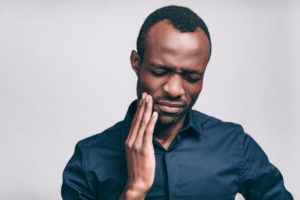
People with bruxism clench or gnash their teeth. There are two types of bruxism: awake bruxism and sleep bruxism. Sleep bruxism is more common. Some specialists consider bruxism to be a sleep related movement disorder as it is also common among people with other sleeping disorders such as sleep apnea and snoring.
For most people bruxism is not a serious condition. You should be cautious of the symptoms of bruxism because it can lead to complications such as damaged teeth, jaw problems and headaches.
People with bruxism can develop the following symptoms:
The causes of sleep bruxism differ. Studies show that it can occur from genetic, psychological, and physical factors.
Bruxism in adults is often linked to stress and stress related emotions such as anger and frustration. Bruxism is usually a reaction of the body as it tries to cope with these emotions.
Studies show that people who grind their teeth are more stressed and suffer from conditions such as anxiety disorders and clinical depression. Blood test sample results support these claims as they contain substantially higher levels of stress hormones.
Stress increases the production of adrenaline in the body. Since the individual is not moving during sleep, the energy is directed towards teeth grinding. During a bruxism episode, the individual’s heart rate and breathing increases; these are some of the effects of the production of adrenaline and cortisol hormones.
People who suffer from bruxism might benefit from these stress management techniques:
People with bruxism require proper dental care to address the condition and it’s side effects. Consult Holman Family Dentistry, located in Centerton, Arkansas, if you have symptoms of bruxism or any other dental problems. Check out our website to request a dental consultation. You can also reach us at (479) 795-1101 or find us on Facebook.
Site created by AR Marketing & Design Agency